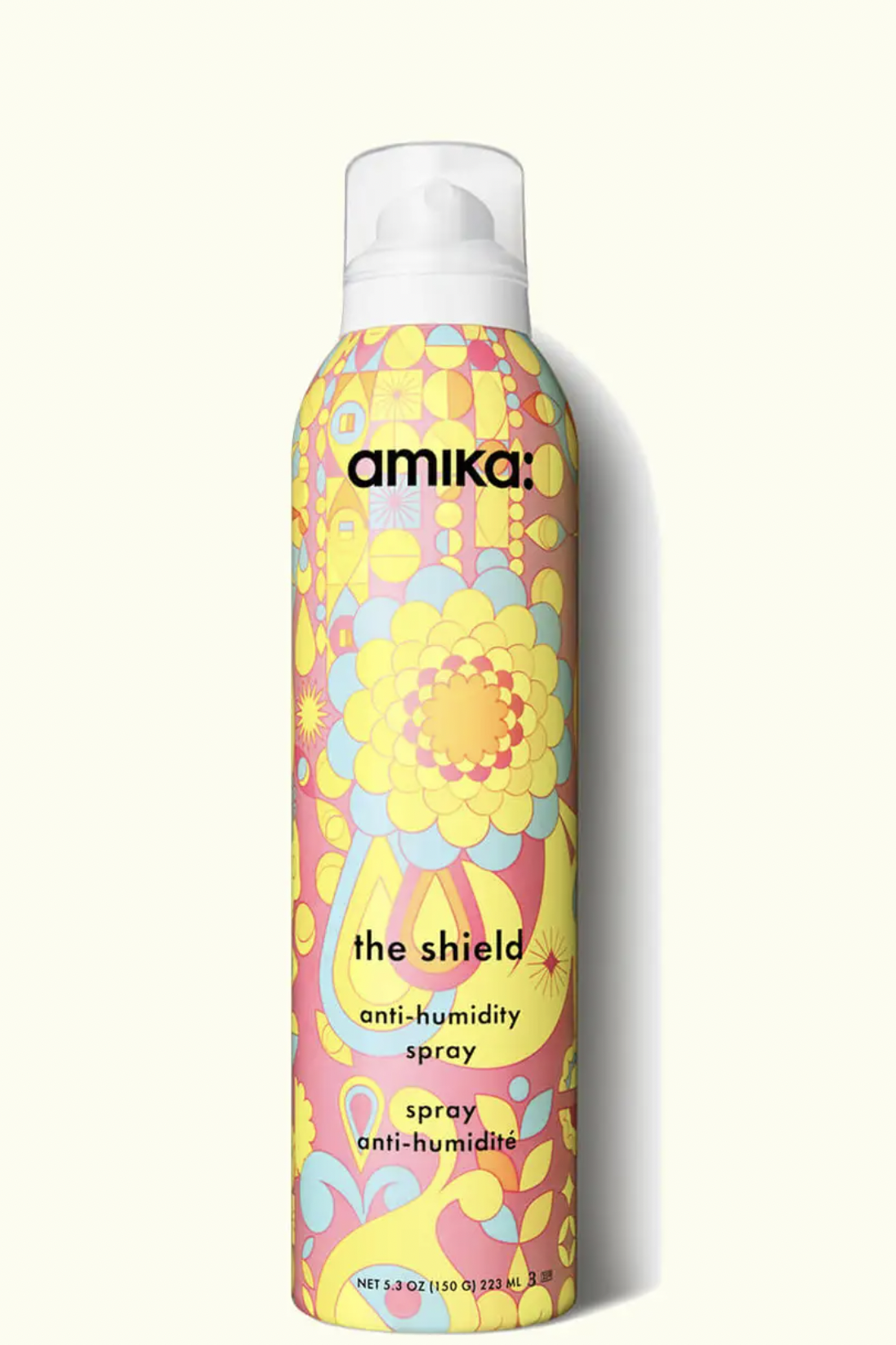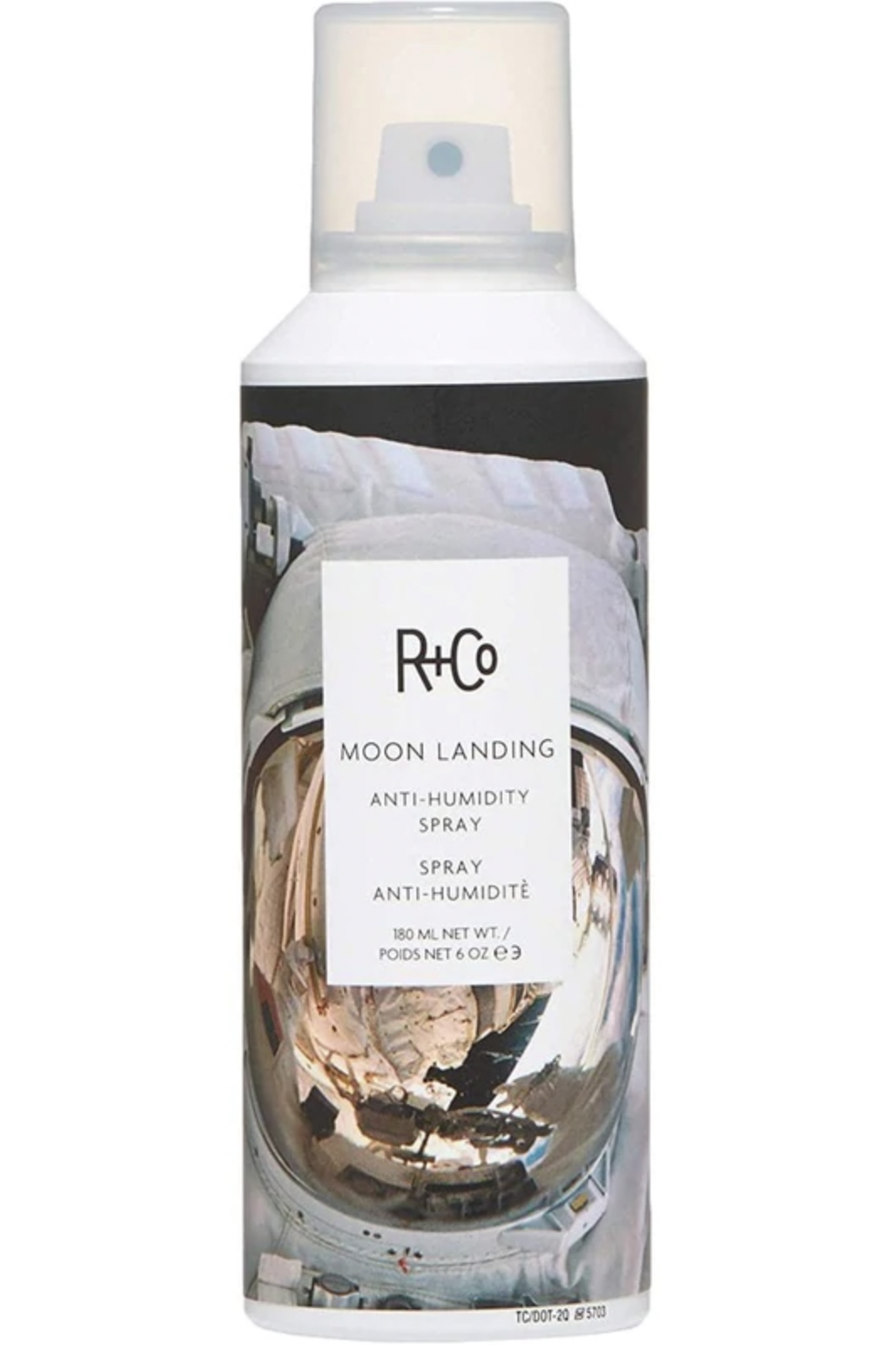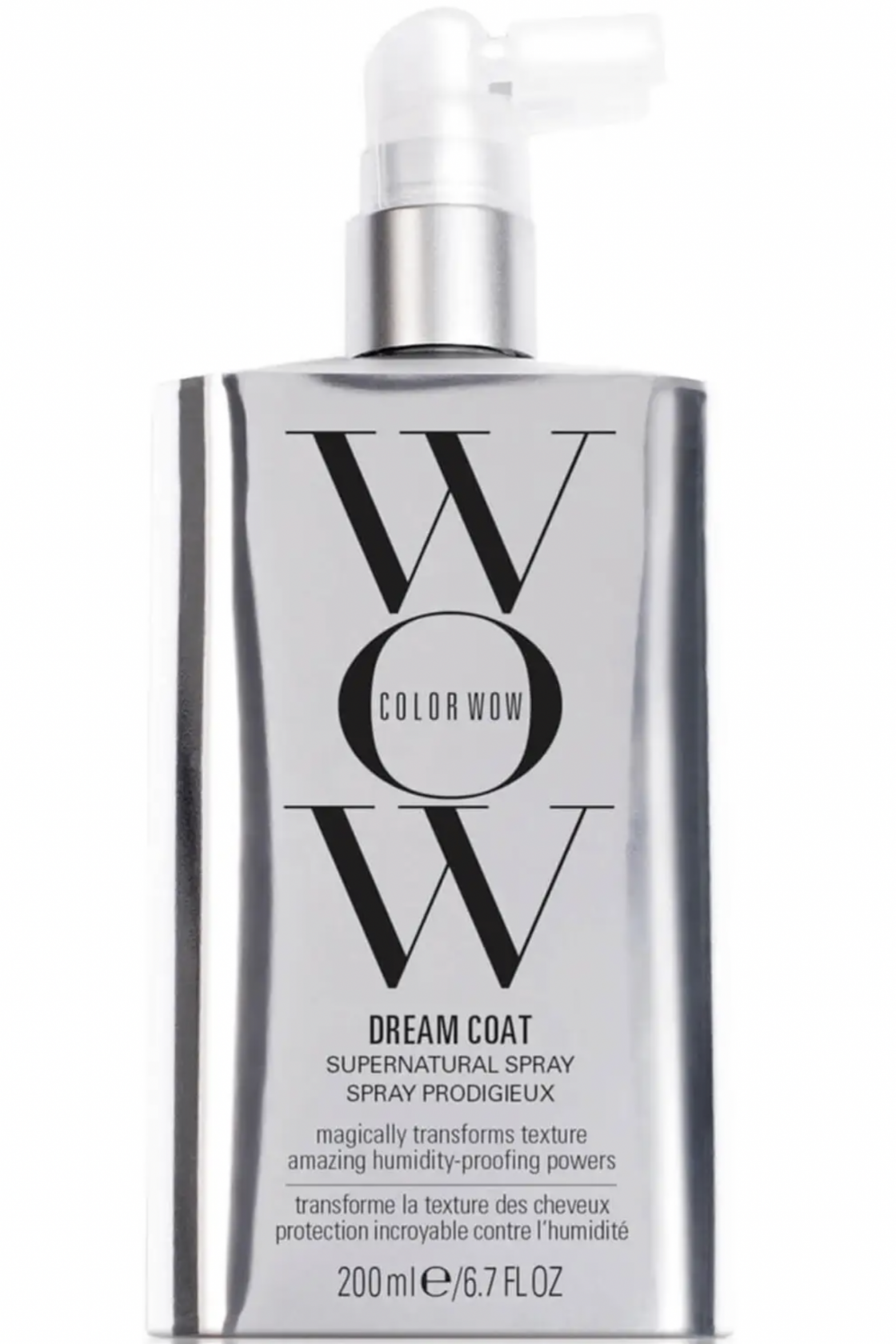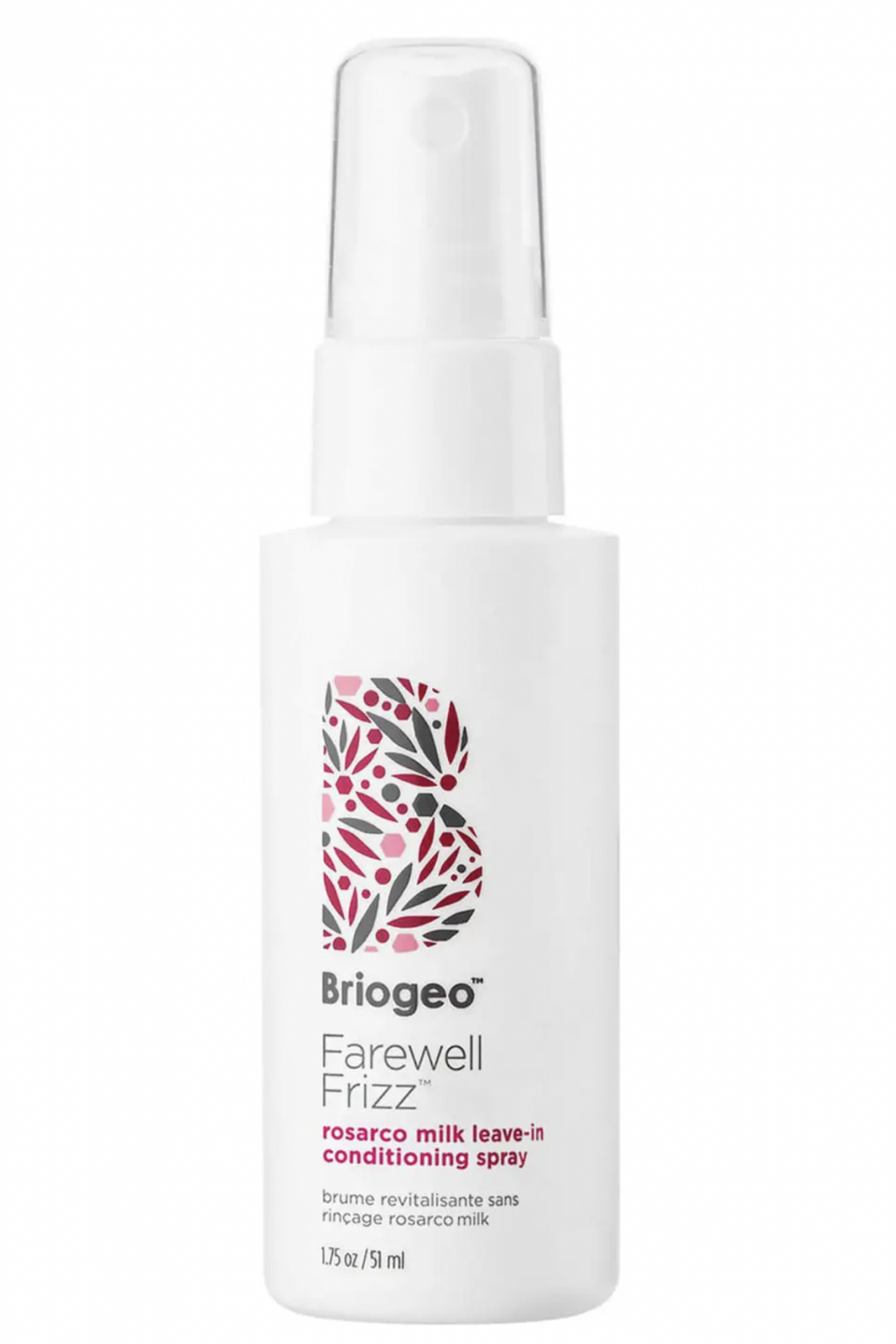Written by Morgan Fargo
Frizz-halo season is here, people.
Frizzy hair has been a mainstay in my life since I could cognitively recognise myself in a mirror. No matter how much I smoothed, slicked and brushed, my hair would repeatedly return to a natural fluff; all the while, one question ran through my mind: why is my hair so gosh darn (replace with a more realistic expletive) frizzy?
There have been periods of time when I’ve leaned into the style, even going so far as to brush through my curls to create a halo of gravity-defying fluff and it looked great. However, when I’ve spent time perfecting a blow-dry or trying to look put together in holiday photos, the frizz is not my friend.
Ahead of sticky-neck/halo-frizz season, here’s the 411 on why your hair is frizzing and what you can do about it if it’s bothering you.
First, let’s be clear on what frizz actually is.
Over the years, I’ve heard the word frizz used interchangeably with things it is definitively not. It is not a synonym for curly, coily, tightly textured or wavy hair. Instead, it specifically references how the hair behaves when the cuticle has been damaged or the protective barrier compromised.
“A hair shaft is made up of several layers; the outermost layer is known as the cuticle. The cuticle is a protective envelope made up of five to 10 layers of flattened ‘horny cells’. They form a single cell layer, arranged in an overlapping pattern like tiles on a roof,” explains Arran Isherwood, a senior trichological specialist at Fue Clinics.
“The edges of these scales should lay down smooth (similar to scales on a fish), pointing towards the end of the hair shaft and forming a smooth and protective barrier. When this barrier is damaged the scale edges start to turn outwards, which allows moisture/water to gain access to the cortex, causing the hair to swell, change shape and result in frizziness.”
What are the main causes of frizz?
“There are generally three main reasons that can cause the hair to frizz,” explains Kash Bishop, textured hair specialist at Neville Hair and Beauty.
1. Moisture in the air
“The first and most obvious reason is humidity. In a humid environment, the hair is likely to swell due to moisture penetrating the hair shaft.This can cause it to bend in an irregular pattern creating frizz. At Neville Hair and Beauty, we always recommend using anti-humidity styling products to help repel and prevent frizz.”
2. Genetics
“Another cause of frizz is genetics. While curly and wavy hair can often align together, sometimes they do not and the hair can appear frizzy. This does not mean that your hair is damaged, but simply that your curl pattern has no definition.
“If you are prone to genetic frizz, avoid drying your hair upside down as this can raise the cuticle and create frizz. Instead, blow-dry the hair down from root to tip, as the heat will smooth the cuticle.”
3. Damage
“Last but not least, damage to the hair is the primary cause of frizz. Excessive backcombing, heat and rough brushing (also known as mechanical damage) could all result in your hair chipping, splitting and creating frizz. To prevent damage, I advise you to consult your hairstylist – they’ll be able to recommend the best way to cut and style your hair based on your curl pattern, hair density and porosity.
“A good stylist should be able to identify the cause of the frizziness during a consultation and after carefully assessing the hair and advise you on the best course of action.”
Are there any habits that can cause the hair to frizz more easily?
“Washing hair in very hot water can have the same effect as humidity, drying the hair out, roughening the cuticle surface and making it more porous and open to water/moisture ingress,” describes Isherwood.
“Heat styling and overwashing can also cause damage to the hair cuticle, the latter by stripping away the natural protective oils. Finally, vigoroustowel drying produces friction between the towel surface and hair cuticle, roughening and damaging the hair shaft and creating frizz.”
An old cotton T-shirt or microfibre towel can help to minimise the breakage and damage caused by towel drying.
Amika / £10
The Shield Anti-Humidity Spray
R+Co / £17
R+Co Moon Landing Anti-Humidity Spray
Colour Wow / £26
Dream Coat Supernatural Spray
Briogeo / £10
Farewell Frizz Rosarco Milk Leave-In Conditioner
Does frizz always mean that hair is unhealthy or damaged?
Not necessarily, says Tony Maleedy, trichologist and founder of EarthKind and Tony Maleedy haircare. “Hair in excellent condition can be frizzy because all it wants is to be in the shape it is grown to be in. Having said that, dry hair is more prone to being frizzy simply because being dry and devoid of moisture, it takes up moisture much more readily than hair in better condition.”
How can I stop my hair from frizzing all the time?
“After you’ve washed and dried your hair into the shape you’d like, it’s best to put a barrier between it and the moisture in the atmosphere. It’ll greatly reduce the opportunity for the hair to revert to its natural shape and become frizzy,” explains Maleedy.
“Silicones are very good at this. A silicone-based spray can greatly help to reduce frizz. If you want a more natural method, applying hair oil with have a similar effect. However, too much oil will quickly weigh the hair down and make it look greasy. Lighter oils, like jojoba and avocado, are generally the best option to choose. Rub a very small amount between your palms and then lightly spread it over the surface of the hair. This will help to keep the hair in a more uniform shape without individual strands sticking out giving the appearance of frizziness.”
Here’s a curated edit of the best hair oils, hair masks for dry and damaged hair and reparative hair serums to have on your radar. Plus, a genius anti-humidity spray that kept my naturally frizzy hair in check for three days.
Main image: Getty
Source: Read Full Article




